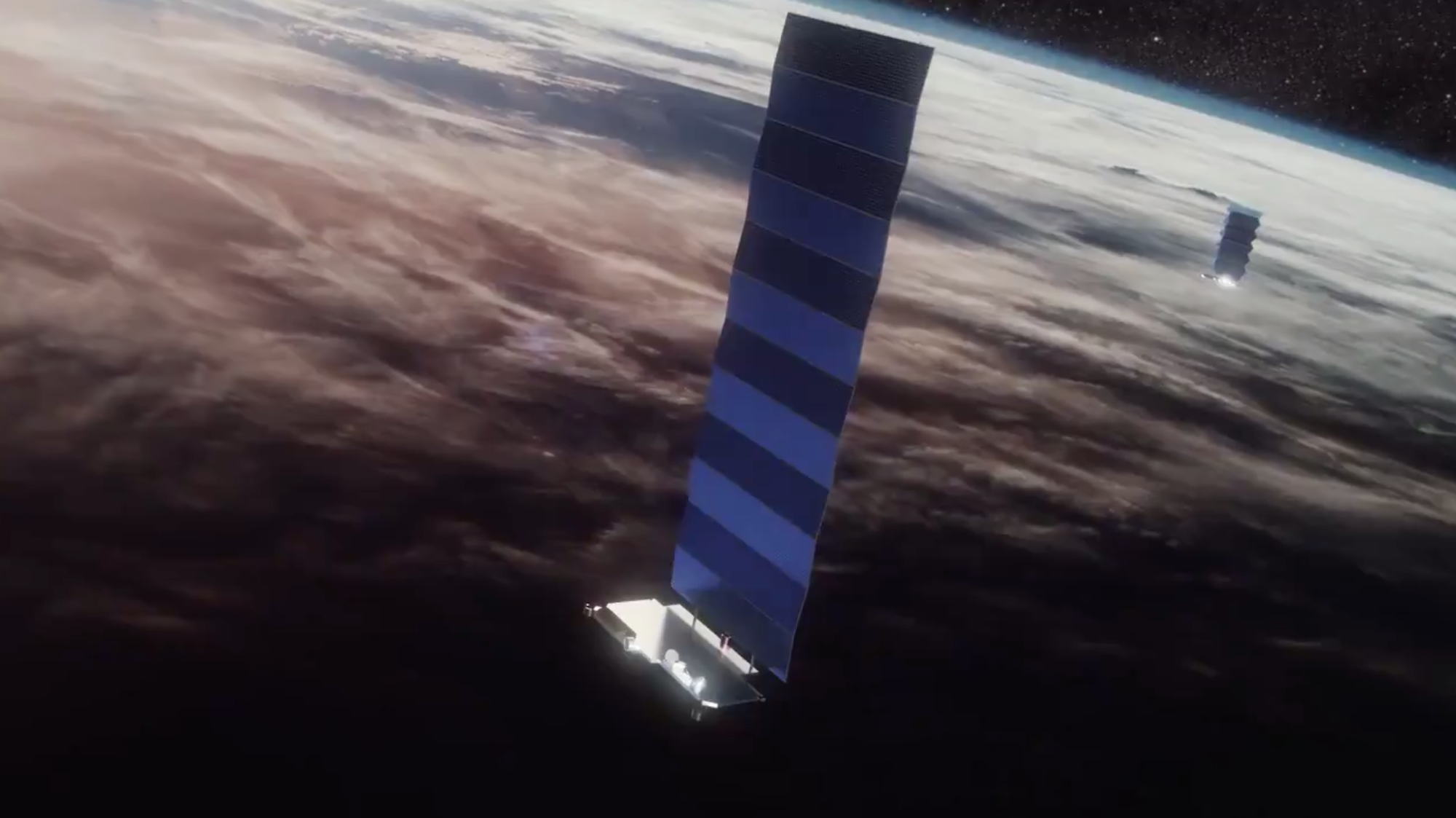The FCC will allow SpaceX to launch 10 Starlink satellites into polar orbit on an upcoming mission, but has postponed a decision on a much broader amendment to the SpaceX license.
at An order was published on January 8, The Federal Communications Commission granted SpaceX permission to launch 10 Starlink satellites in an orbit of 560 kilometers with an inclination of 97.6 degrees. These satellites will be launched on Falcon 9 no later than January 14 as part of Transporter-1, a mission dedicated to sharing flights from smallsat.
SpaceX has been lobbying the FCC for weeks to obtain permission to launch Starlink satellites in a polar orbiter as the FCC is considering amending the company’s license to lower the orbits of the originally authorized satellites to higher altitudes. Included November 17th request to launch 58 satellites in a single polar orbiter, Citing an „opportunity to launch my pole in December,“ she did not specify.
In the January 5 file with the FCC, SpaceX said it had spoken with FCC officials the day before about this request. The company said, „SpaceX has confirmed that if it gets the appropriate mandate, its next mission, Transporter-1, will include 10 satellites from Starlink targeting work in polar orbits.“
SpaceX argued in the filings that adding at least some satellites to polar orbits would allow it to begin service in Alaska, which is not in the coverage area of current Starlink satellites launched in mid-mile orbits. „The launch to polar orbits will enable SpaceX to provide the same high-quality broadband service to remote areas of Alaska that other Americans depend on, especially as the pandemic limits someone’s chances of contact,“ the company said in its November file.
Other satellite operators opposed the move. In a report dated November 19, Viasat said that „commercial convenience“ was not a sufficient reason for the FCC to grant SpaceX permission to launch satellites in polar orbit, raising concerns about the reliability of the Starlink satellites and the risks of the orbiting debris they pose.
The FCC concluded, in its order, that allowing SpaceX to launch 10 Starlink satellites into polar orbits was in the public interest. „We found that the partial grant of ten satellites will facilitate the continued development and continuous testing of SpaceX’s broadband service in geographic areas of high latitude in the near term pending subsequent action to address the arguments in the registry regarding granting the modification as a whole and the entire subset of the orbiting satellites In polar orbit. „
Fyasat refused to oppose the request, noting that allowing the ten satellites „does not represent concerns regarding the issues raised by the commentators.“ This included concerns about orbital debris about the failure of the Starlink satellites. „We conclude that the addition of these 10 satellites is unlikely to have any significant incremental effect on the operations of other satellites at the relevant orbital altitudes,“ the order said.
Despite this, the Federal Communications Commission (FCC) has postponed a decision on a request to amend SpaceX’s blanket license to reduce the orbits of those satellites. In the application, the FCC did not state when it expects to rule on the full application.

„Organizátor. Spisovateľ. Zlý kávičkár. Evanjelista všeobecného jedla. Celoživotný fanúšik piva. Podnikateľ.“







